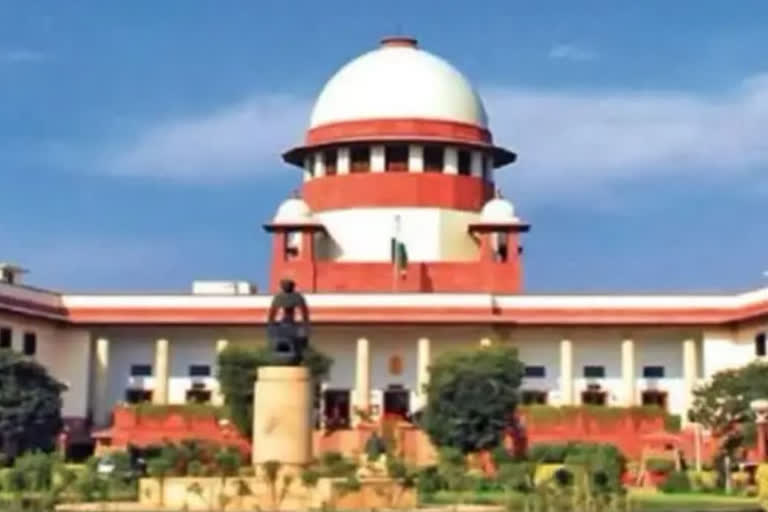New Delhi: A dying declaration can be the sole basis for recording a conviction and a court is required to examine whether it is true and reliable, the Supreme Court Tuesday said. The top court also said that a court should also examine whether the dying declaration has been given when the deceased was physically and mentally fit to make the declaration and was not under any tutoring or duress.
In case there are multiple dying declarations and there are inconsistencies between them, the dying declaration recorded by the higher officer like a Magistrate can be relied upon, it said. The apex court, however, said this is with the condition that there is no circumstance giving rise to any suspicion about its truthfulness. A bench of Justices B R Gavai and P S Narasimha made the observations while acquitting a man convicted under Section 304-B (dowry death) of the Indian Penal Code.
The court is required to examine whether the dying declaration is true and reliable; as to whether it has been recorded by a person at a time when the deceased was fit physically and mentally to make the declaration; as to whether it has been made under any tutoring/duress/prompting. The dying declaration can be the sole basis for recording conviction and if it is found reliable and trustworthy, no corroboration is required.
In case there are multiple dying declarations and there are inconsistencies between them, the dying declaration recorded by the higher officer like a Magistrate can be relied upon, the bench said. In case there are circumstances wherein the declaration has not been found to be made voluntarily and is not supported by any other evidence, the Court is required to scrutinize the facts of an individual case very carefully and take a decision as to which of the declarations is worth reliance, the bench said.
The top court was hearing an appeal filed by a man challenging an order of the Punjab and Haryana High Court which reduced his sentence awarded from 10 years to seven years but concurred with the judgement and order of conviction by the trial court in offence punishable under Section 304B of the IPC. In the instant case, the deceased had given two dying declarations. In the first one, the woman had said that she consumed a poisonous medicine by mistake.
While in the second dying declaration, the deceased said that her husband, as well as his parents, administered the poisonous substance to her. The top court said in the present case, it was faced with two dying declarations, which are totally inconsistent and contradictory to each other. It noted that the second declaration was recorded without there being examined by a doctor concerning the fitness of the deceased to make the statement.
The apex court said the father and sister of the deceased were present in the hospital at the time of the second dying declaration. The possibility of the second dying declaration being given after tutoring by her relatives cannot, therefore, be ruled out, the bench said. We, therefore, find that in the facts and circumstances of the present case, the first dying declaration will have to be considered to be more reliable and trustworthy than the second one.
In any case, the benefit of the doubt which has been given to the other accused by the trial court, ought to have been equally given to the present appellant when the evidence was totally identical against all the three accused, the apex court said while acquitting the husband. (PTI)



